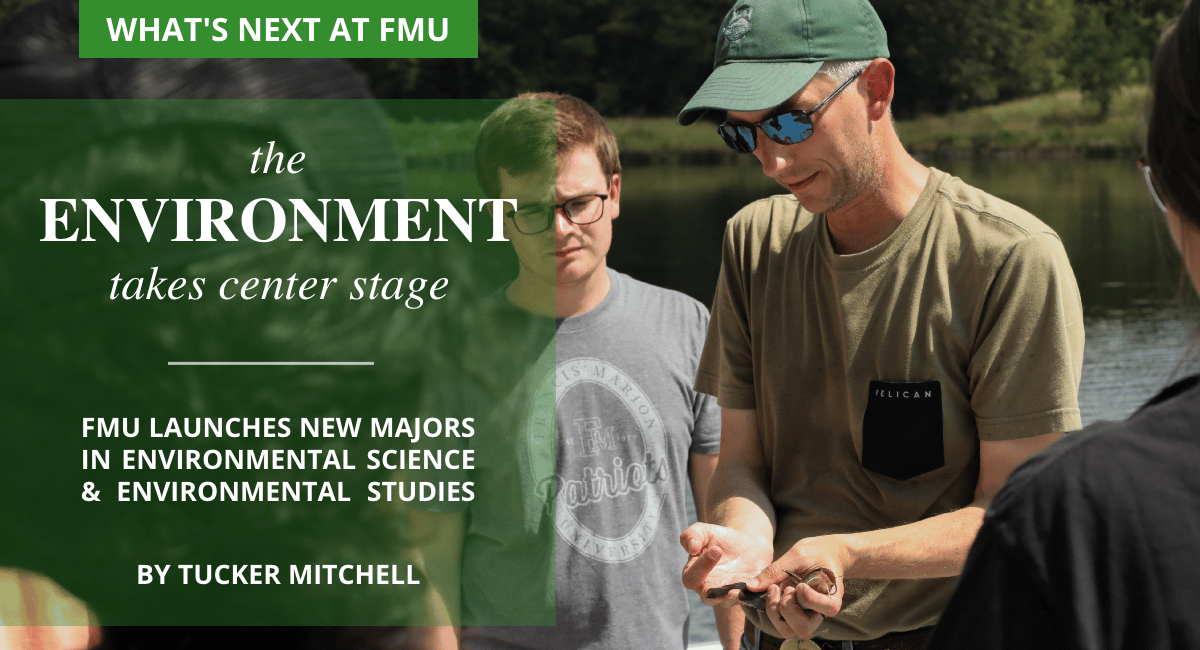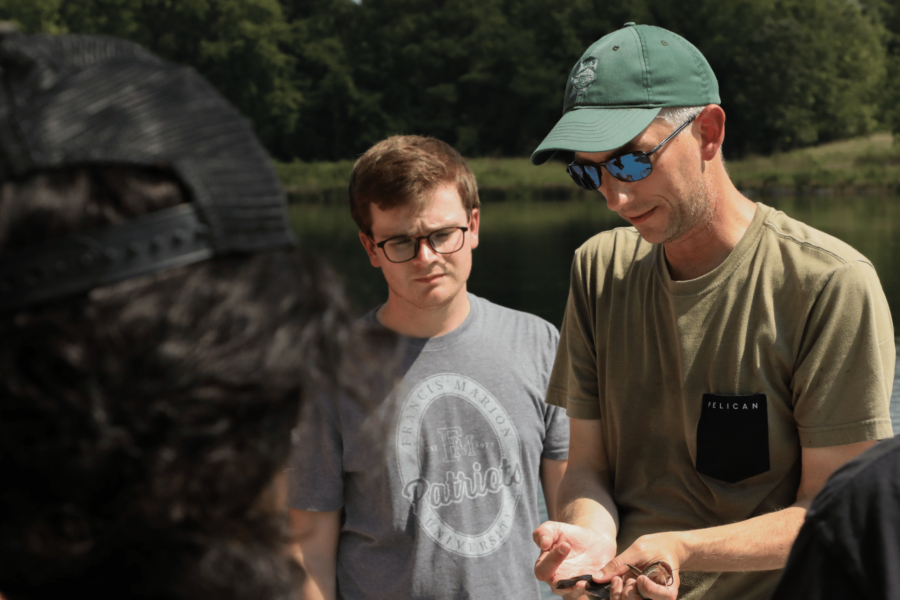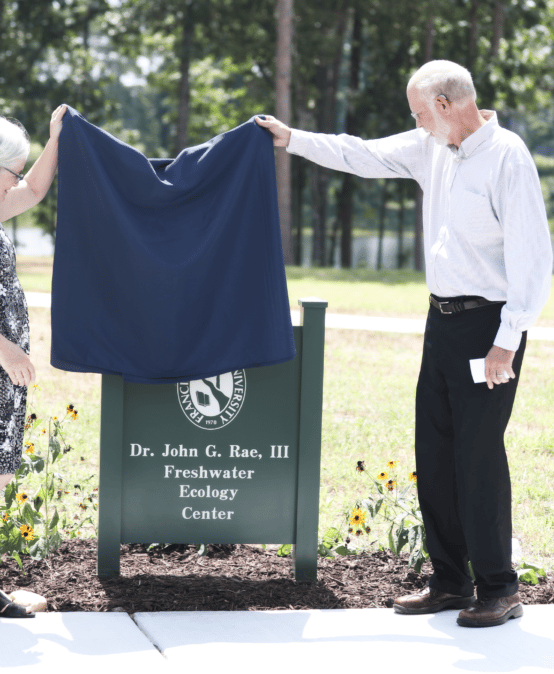November 13, 2022

The Environment Takes Center Stage
The Environment Takes Center Stage
By Tucker Mitchell | November 2022 | FMU Focus Magazine Fall/Winter 2022

The lineup of academic majors at Francis Marion is growing so fast the university is having to move the next ones outdoors.
Which is right where they belong.
FMU’s newest academic additions are in the environmental science. The university began degree programs this fall in Environmental Science (Bachelor of Science) and Environmental Studies (Bachelor of Arts). A major in Forestry, and advanced degree offerings in Environmental Science are expected to follow shortly.
The new programs address community and national needs. As the world becomes “greener” and more and more attention is focused on issues of the environment and sustainability, there will be more and more jobs for specialists in the environment. And, there’s logic to FMU, a school that has long been known for the natural beauty of its setting, serving as a hub for education in that field.
“Establishing majors in Environmental Studies and Environmental Science makes sense for the university at this time and place,” says FMU President Dr. Fred Carter. “We’ve always had a setting that was conducive these studies and for years, or biologists and their students have taken advantage of that. Now, we’re adding top-notch research and laboratory facilities to that mix. Combine that with the growing interest, and need, in this field, and this becomes a very compelling idea.”
The new programs came together quickly, but planning and preparation has been underway for a number of years, driven in part by the continuing excellence of the FMU’s department of biology. A large and broadly trained faculty facilitated the exploration of new academic paths. That included planning and building new facilities.
FMU’s new ecology laboratory, on a pristine lake next to the Pee Dee River, opened last summer, just in time for the opening round of classes in the new majors. Construction is expected to begin on a new Forestry and Environmental Science classroom building in 2024.

The new program also connects with a long-standing partnership between FMU and the South Carolina Department of Natural Resources (SCDNR). FMU regularly places students with DNR for internships and other extended learning opportunities and partners with the agency in other ways as well. SCDNR already has a branch office on the FMU campus.
A dozen students are involved with the new environmental studies area this year. About half are freshman, just entering the university.
Dr. Jason Doll, assistant professor of fisheries at FMU and director of the environmental science program, says the program is clearly generating interest and excitement amongst prospective students.
“We’ve had conversations with a number of our existing students (in biology) and our department chair (Dr. Vernon Bauer) said that at our recent open house events this is the program that a lot of prospective students wanted to talk about,” says Doll. “That’s a trend nationally as well. This is a rapidly developing field.”
Doll thinks the program will quickly double in size and then continue to grow from there.
FMU’s two-track approach is somewhat unusual. Most universities offer either Environmental Science or Environmental Studies. FMU leaders thought the dual approach would better serve students as they began their academic careers.
“A student who starts in one could easily move to the other during their career,” says Doll, “and you’d expect there would be some of that. As they move through the courses students will began to understand where their interests really lie.”
The Environmental Science major is, as its name implies, more focused on the science behind the study of the environment. Students will receive a firm grounding in biology and chemistry, while also studying issues related to the environment overall. Majors would be suited for careers involving scientific collection and study of data pertaining to the environment. Likely employers would include government agencies, and private firms that provide environmental consulting to big business.
Environmental Studies focuses more on policy and theory surrounding environmental issues. Students would study the science of the environment but would also study issues in politics, geography, economics, and sociology. Environmental Studies majors would be aligned with careers with government agencies, in politics, or with private business that consult on environmental issues, Doll says.
Both majors include a large number of multi-disciplinary classes, but that is a particularly strong focus in Environmental Studies. Students in both majors would benefit from the knowledge and teaching of FMU’s English, Sociology, Political Science, History Departments, and from the School of Business. That’s in addition to connecting with the university’s biologists and chemists.
The first majors are expected to graduate in 2027.




